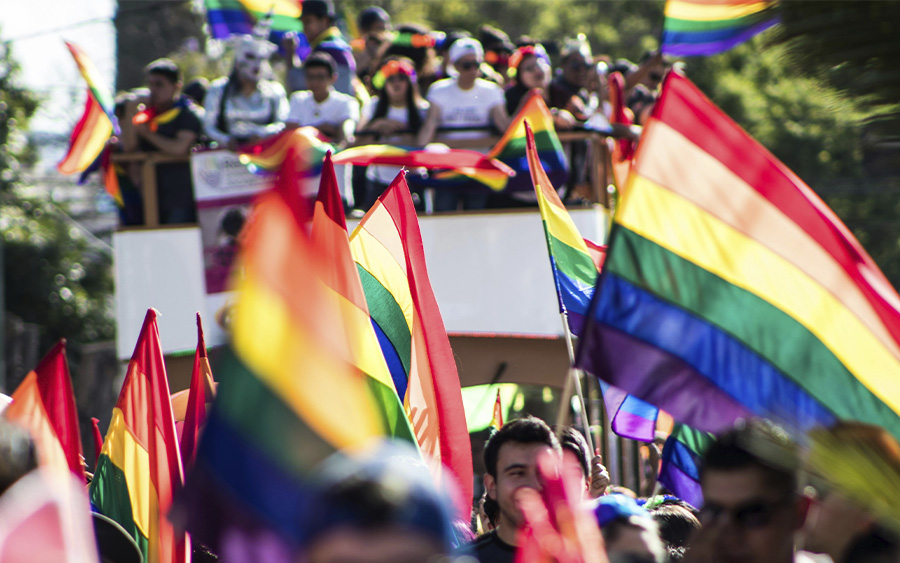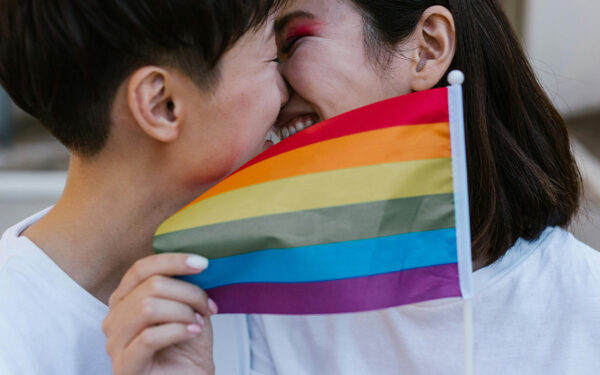Being an LGBTQ+ individual still means facing stigma, discrimination, and limited access to care in many parts of the world—real challenges that greatly impact mental health. Pride has always been about visibility and self-love, but with anti-LGBTQ+ laws on the rise, celebrating it this year is more important than ever.
In recent years, shifts in the political landscape of the U.S., as well as other parts of the world, have led to a surge in anti-LGBTQ+ bills, making life even more difficult for an already marginalized community.
If discrimination was already taking a toll on mental health, things have only worsened as more states pass laws that threaten safety, dignity, and basic human rights.
In response, LGBTQ+ people, loved ones, and allies are finding ways to stand up and advocate for their rights—Pride season is one meaningful way to do so. Engaging in LGBTQ+ activism is associated with improved psychological well-being, as it provides a sense of purpose, strengthens coping skills, and builds community.
In light of the challenges of recent years, showing up for Pride—however you can—matters now more than ever.
Common Mental Health Challenges Faced by the LGBTQ+ Community
The stigma faced by the LGBTQ+ community significantly increases the risk of mental health challenges—they are more than twice as likely as heterosexual people to experience a mental health condition in their lifetime. These challenges include depression, anxiety, self-harm, substance use, PTSD, and suicidal thoughts, often worsened by social isolation, discrimination, and chronic stress.
The Trevor Project’s 2024 U.S. survey on LGBTQ+ youth mental health revealed concerning results:
- 66% reported experiencing recent symptoms of anxiety, and over half had symptoms of depression;
- 39% seriously considered suicide in the past year—nearly half of them were transgender and nonbinary;
- Over 1 in 10 (12%) LGBTQ+ young people attempted suicide in the past year.
In addition, the LGBT community faces significant barriers to accessing both physical and mental health care. Despite the high rates of anxiety, depression, and suicide risk, the survey showed that half were unable to get the mental health support they needed. Alarmingly, nearly 3 in 5 transgender and nonbinary people also reported fear of losing access to the gender-affirming care they were receiving at the time.
Celebrating Pride Month, despite these challenges, provides a way to build social connections and helps LGBTQ individuals find meaning in their identity and values.
The Politics That Make Pride Essential And How They’re Affecting LGBTQ+ People
Currently, the American Civil Liberties Union is tracking nearly 600 anti-LGBTQ+ bills across U.S. states, targeting areas such as access to health care, sports participation, civil rights, identity, school policies, and more.
The Trevor Project’s survey draws attention to the significant toll these policies are taking on LGBT youth mental health: a staggering 90% said recent politics have negatively affected their well-being, with more than half (53%) reporting a major negative impact. Additionally, nearly half (45%) of transgender and nonbinary people said they or their family have considered relocating to another state due to anti-LGBTQ+ laws.
These unsettling political developments are deeply concerning, as they show that—on top of existing stigma and discrimination—safe, LGBTQ-affirming spaces are increasingly disappearing, leading to even greater feelings of isolation.
Why Celebrating Pride This Year Matters More Than Ever
This has been a particularly difficult year for LGBTQ+ people, largely due to the surge of anti-LGBTQ+ legislation that targets their rights—rights they have fought hard to earn. The current political climate is a clear reminder of why celebrating Pride is now more important than ever.
Pride season creates a collective space to stand in solidarity and resist systemic injustice, honoring diversity while normalizing and validating experiences that are often marginalized or misunderstood.
It offers LGBTQ+ individuals an opportunity to stand against institutions, organizations, governments, and lawmakers.
The Trevor Project’s survey shows that people living in accepting communities report less than half the rate of suicide attempts compared to those who do not. By contrast, experiences such as physical threats or harm, discrimination, conversion therapy, or bullying are associated with more than double the rate of suicide attempts in the past year—all of which can occur within one’s community.
In light of these experiences, publicly celebrating LGBTQ+ lives challenges harmful narratives, helps communities acknowledge and process collective trauma, and fosters a deeper understanding of its individual impact—all while promoting greater acceptance, especially among those who may never have had the opportunity to connect with LGBTQ+ people otherwise.
In a world where legislation is causing the disappearance of safe spaces, Pride Month continues to spark change, play a vital role in the LGBTQ+ movement, and bring the community together by fostering a sense of strength, optimism, and resilience.
Benefits of Celebrating Pride
There are several benefits to taking part in one of the most important celebrations for the LGBTQIA+ community, including:
Promoting connection
LGBTQ+ individuals can often feel disconnected from friends and family, making it difficult to find meaningful connections. Since loneliness is linked to poor mental health and early mortality, Pride helps foster a sense of inclusion and community.
Finding or affirming identity
Understanding and accepting who we are can be incredibly difficult when our identities are subject to discrimination and a lack of affirmation.
Being surrounded by others who are on—or have been through—a similar journey can help navigate the process of self-discovery and embracing one’s LGBTQ+ identity.
Promoting visibility and representation
In a society shaped by heteronormativity and cisnormativity, it can be difficult to find others who share similar experiences and challenges.
Pride celebrations foster a sense of belonging and confidence, encouraging individuals to follow their aspirations and live in a way that feels true to who they are.
Displaying allyship
For those who aren’t part of the LGBTQ+ community, Pride season offers a meaningful opportunity to show support and advocate for LGBTQ+ rights.
For queer individuals, allyship provides validation and creates a safe, welcoming space—one where they don’t have to fear rejection or exclusion.
Find Affirming Care in Baltimore, MD
Are you looking for a professional who can support your LGBTQ+ experience or help you make sense of your feelings around gender identity? Finding the right therapist can be frustrating, but the key is to look for someone who makes you feel comfortable, respected, and safe.
Our therapists in Baltimore will help you explore your identity and cope with harmful emotions that can get in the way of building the life you truly want. You don’t have to do it alone! Contact us to know more or schedule a free 15-minute consultation here.






